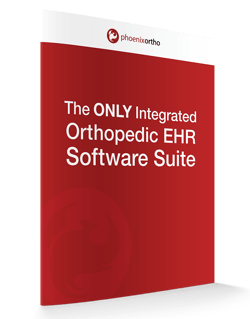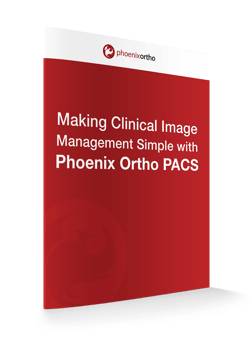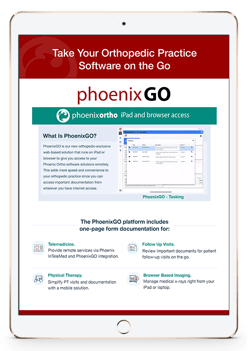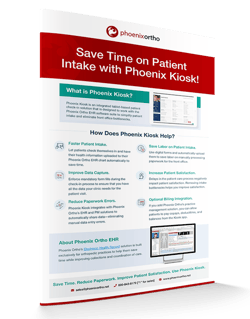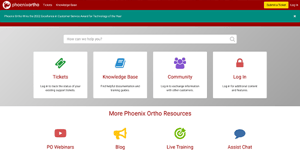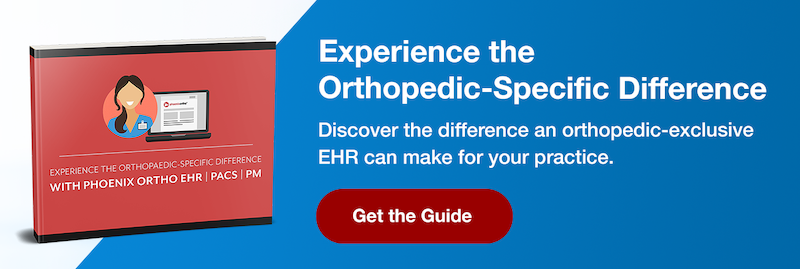I was recently asked to prepare a presentation for the annual New England regional AAOE meeting on the topic of why meaningful use was worth the trouble.

Of course I had my own opinion based on the experience we have had with our clients across the nation, but I decided the attendees would be better served if I expanded the presentation to include perspectives from others. So I began to surf the web to see what the “blogosphere” had to say on the topic. The following article is a synopsis of that presentation – I think you will find the results illuminating.
Nirvana, Utopia, and World Peace!
Apparently the cost of medical care is high in the United States. No, really, it must be true. I found graphs, charts, reports, studies, political speeches, and tear-jerking-stories across the web detailing how medical care is so expensive and so far beyond the grasp of the average American that I began to wonder how anyone in the 99% was still alive!
But it seems that there is an answer! Yes, the problem of high cost medical care will be solved with three simple letters – EHR! Well, not exactly, but it is being positioned as the lynch-pin (yes, I chose this analogy purposely) on which the whole of the medical cost conundrum is resting. Leave it to politicians to cleverly name a bill in Joseph-Goebbels-fashion (ok, that was a bit heavy-handed) in order to drive their propaganda to their constituents, “Health Information Technology for Economic and Clinical Health (HITECH) Act”.
Isn’t HITECH a good thing? Who wouldn’t want healthcare to be HITECH? …and look at the noble goal of the Act…it is FOR “economic and clinical health”! Don’t we want healthcare to be economical? Don’t we want patients to be healthier? (Queue soundtrack; something inspirational…perhaps Lee Greenwood’s “Proud to Be an American”…no…Andy Williams “Born Free”)
Perhaps you think I am overstating the case a bit. Allow me to offer a quote from this link to help demonstrate my point, “…the time will come when the efforts of today will lead to a more robust coordination of patient care, eliminate redundant screenings and tests, reduce medical errors, reduce healthcare costs, and foster improved patient engagement and outcomes in the near future.”
“Facts are stubborn things”
Two studies were published this year that may shed a little light on the efficacy of these claims. The first study, which can be found at this link, was begun because “despite increasing emphasis of the role of clinical decision-support systems (CDSSs) for improving care and reducing costs, evidence to support widespread use is lacking.” The researchers analyzed data across healthcare delivery systems and across many clinical decision support types for clinical and financial results. What were their conclusions? It seems that “evidence for clinical, economic, workload, and efficiency outcomes remains sparse.” (It’s ok, I have the secret decoder ring for study conclusion jargon…it means that there is no link between positive healthcare outcomes or healthcare cost reduction with CDSSs – ouch!)
The second study was a bit less ominous, but equally as important to the point of this article. This study looked at meaningful use of EHR systems in hospitals by measuring process quality of care before and after implementation. What is interesting here is that poorly performing hospitals did better, while high-performing hospitals actually did worse. One of the chief investigators of this study stated, “more technology isn’t necessarily better. While it is important to have certain EHR capabilities, hospitals need to go back and improve the care processes along with technology.”
Now let me state clearly, I am a HUGE fan of technology – especially technology used correctly to solve real problems. Furthermore, I am not trying to say that EHRs will NOT help with healthcare costs or with the delivery of quality care. What I want to conclude is what most administrators I work with already know – EHRs cannot, and will not “solve the healthcare problem.” In fact, the wrong EHR or a poorly implemented EHR can have the opposite effect.
John Adams, one of my favorite patriots and presidents, stated it best, “Facts are stubborn things; and whatever may be our wishes, our inclinations, or the dictates of our passions, they cannot alter the state of facts or evidence.”
A Great Tool Guided by the Wrong Hands
One of the more illuminating trends I discovered in my research was the dissatisfaction experienced by mature EHR users who had to modify their behavior around the new meaningful use criteria. Bob Lamberts, MD in his article published on “The Healthcare Blog” website recounts his enthusiasm and hope for EHRs for the beginning of his EHR use which started 16-years ago. Yet, he has become increasingly cynical as he has seen the federal mandate on “meaningful use” dilute the long-term value gained by their process improvement in exchange for a fleeting financial incentive.
A similar article published on the website “Physicians Practice” by David Mokotoff, MD, an eight year veteran of EHR use. Yet, when evaluating and implementing the federal guidelines Dr. Mokotoff states, “And although I am a big proponent of the EHR, I am not an advocate of meaningless rules and criteria, which do nothing to promote improved patient care, in order to be reimbursed or ‘incentivized’ by Medicare.” Once again we have a doctor in a practice who implemented an EHR prior to the federal mandate growing sour on the EHR tool based on bureaucratically controlled use.
Likewise, Chris Wood, MD, the Medical Director for Information Services of Intermountain Healthcare, was interviewed in this article concludes that “quality improvement initiatives in provider organizations often go bad when they are mandated from the top down, and not integrated into clinical workflow, and compete with other priorities.” Further to this point his practice has determined that the federal mandate “will result in providers documenting meaningful use, but not really becoming meaningful users.”
Each of these articles documents a similar trend, namely that EHRs are excellent tools for process improvement, better clinical outcomes, and financial improvement of the clinic – but only when the EHR tool is used to solve problems recognized by the clinic and is implemented with this purpose as the guiding principle.
Guiding Principle for Meaningful Use: “Pragmatism”
Now that you have been regaled with stories of large-scale studies and anecdotal evidence from physician EHR experts all claiming that the promise of the HITECH Act is little more than a clever repackaging of a myth comparable to the unicorn, the Yeti, or the Abominable Snowman, you may be wondering how I settled on the title “Why Meaningful Use is Worth It”. Allow me to offer you a simple one word answer – pragmatism.
In all honesty I have no reason to believe that the bureaucrats who decided on the metrics for meaningful use are any more knowledgeable or skillful that the politicians who passed the nearly 2,000 page Patient Protection and Affordable Care Act without reading it. But I am not trying to convince you of the Act’s efficacy. Rather, I want to help you understand how you can benefit regardless of the bill’s desired outcomes.
Pragmatism looks to the immediate, practical consequences rather that the alleged goal in a situation – or in simple terms, if one benefits from an action (e.g. the HITECH Act)it doesn’t matter whether the stated goal for the action is realized or not (lower, better OVERALL healthcare delivery)!
There are real, practical clinical and financial benefits to implementing an EHR – we just have never seen any of them realized by a single metric in the HITECH Act’s meaningful use standards. If you take anything away from this article, let it be the following: there is not necessarily ANY correlation between meaningful use standards and positive outcomes in YOUR clinic. Even if we assume the best intentions of the standards and assume the best possible outcomes from their implementation, the overall result is measured based on improvement in “Medicine”, not ”medicine” (the big “M” signifies the whole, while the little “m” means your practice and specialty).
Further to the point, if the implemented standards lower overall healthcare delivery costs AND ORTHOPAEDICS AS A WHOLE takes a giant leap backwards to the days prior to elective total knee replacement for athletic seniors – the HITECH Act will be deemed a success. Do you see the point?
So allow me to offer this pragmatic advice: I want to encourage you to implement an EHR, to institute the meaningful use standards, and to report your findings to the federal government – not simply because they will give you $44,000 (although this is a nice benefit), and not because you will be saving Medicine (I’m not really sure it needs saving anyway), but because an EHR is a helluva tool that can help YOU deliver better care, more efficiently, and more profitably (without any respect to Medicine).
Orthopaedic-Specificity (solving problems from the bottom-up, not the top down)
Phoenix Ortho is a company that exists, as all companies do, to make a profit. But we are more than just a profit engine; we also have a genuine concern for private practice orthopaedic medicine. We developed our EHR system long before the federal government decided to supplement their purchase (way back when we were called an EMR) and in some ways we long for those days. At that time practices evaluated our software based on its use as a tool to help benefit the practice. The evaluation took the form of a simple two-sided ledger – if the benefit of our system exceeded the price for purchasing our system, we often had a sale. Our only goal post contracting was to deliver on our promised benefits.
Phoenix Ortho is the same company now as it was then, but our software has grown to deliver even more benefits to orthopaedic practices. While we have added the metrics necessary to help practices prove meaningful use, these metrics do not take precedence over our core development mandate of process improvement in orthopaedics. We do not, and in fact cannot, rely on bureaucratically mandated criteria to help guide us as we seek to streamline processes in the orthopaedic clinic. We will continue to rely on our interaction with orthopaedic practices of all sizes across all subspecialties to guide our development from the bottom-up – as it should be.
There is a reason why Phoenix Ortho is the most selected vendor among orthopaedic practices for an EHR; the reason begins and ends at design. At Phoenix Ortho we solve the real problems in private practice orthopaedic clinics and as such our results are demonstrable.
Why is Meaningful Use worth it? From our perspective, it is because this legislation offers orthopaedic physicians the financial incentive to implement the Phoenix Ortho software solution (Yes, we are that proud of our system).
Don’t wait any longer to get started. Call Phoenix Ortho today and take a step toward an electronic office. To speak with or request a live demonstration of orthopedic-specific software, call 800-843-8179 option 1 or click here.
Phoenix Ortho is a Texas company.
Schedule a 1:1
Get in touch with Phoenix Ortho to learn more about how you can save time, money, and mouse clicks with an orthopedic-specific EHR.





